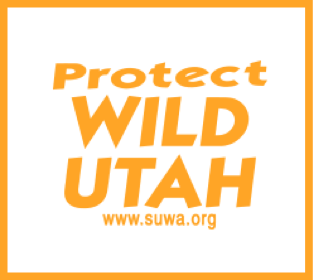|
The Wilderness Society * Earthjustice * Southern Utah Wilderness Alliance FOR IMMEDIATE RELEASE: 9/1/2009 Contact: Court Rules that Utah County May Not Rely on Unproven “Highway” Claims to Undermine Federal Protection of National Monument Denver, CO—The Tenth Circuit Court of Appeals ruled Monday that a Utah county may not override federal rules meant to protect wildlife, streams, archeological sites, wilderness and monuments by relying on unproven highway rights of way. Conservationists filed the suit after Kane County, Utah, ripped out signs posted by the Bureau of Land Management in the Grand Staircase Escalante National Monument, a wilderness and national recreation area, which were meant to protect areas from damage by off-road (ORV) and other vehicles. The county also attempted to buck federal authority by placing its own signs inviting ORV use in the very same places the BLM had prohibited it. The court resoundingly rejected the county’s attempt to take the law into its own hands, reasoning that the county’s actions violated the supremacy clause of the U.S. Constitution. That clause provides that federal law supersedes local or state laws involving federal issues where the two conflict. The court also held that the county must first prove that the rights it claimed were valid before federal managers had to accommodate them. The county claims it owns the routes under a Civil War-era law titled R.S. 2477. Although repealed, R.S.2477 allows agencies, groups and individuals to assert rights-of-way across federal lands if they can prove extended pre-existing use. In Utah alone, there are more than 10,000 R.S. 2477 highway claims for primitive trails in national parks, forests, wilderness areas, and lands proposed for wilderness protection. “This case is important because it will thwart the abusive efforts by some counties to hamstring protection of federal lands by merely claiming that old trails, cow paths and streambeds are actually county highways immune from federal law,” explained Heidi McIntosh, one of the attorneys who brought the case. “R.S. 2477 is not a get-out-of-jail-free card.” “This is a great day for the protection of our national parks, monuments and wilderness areas in Utah and across the country,” said Ted Zukoski, one of the Earthjustice attorneys who handled the case. “All of the judges agreed that Kane County broke the law when it posted signs opening closed routes on public lands without proving they have a right of way.” Zukoski noted that there’s still plenty of motor vehicle access across federal lands in Kane County. Nine-hundred and eight miles of routes remain open in the Grand Staircase-Escalante National Monument under the federal management plan. The ruling also did not affect the ability of local governments to work cooperatively with federal land managers on management of major open roads crossing federal lands. “This is a common-sense ruling that should work for everyone,” said Phil Hanceford of The Wilderness Society. “It leaves plenty of room for counties and the government to maintain a road system that gets people out to their public lands, while protecting the values Americans enjoy at one of the country’s most extraordinary natural treasures. And anyone who has been to these amazing natural places knows they are treasures worth protecting.” The lawsuit was brought by Earthjustice, the Southern Utah Wilderness Alliance, and The Wilderness Society. |
|
|

 Southern Utah Wilderness Alliance
Southern Utah Wilderness Alliance
Protecting Utah's Redrock Country
